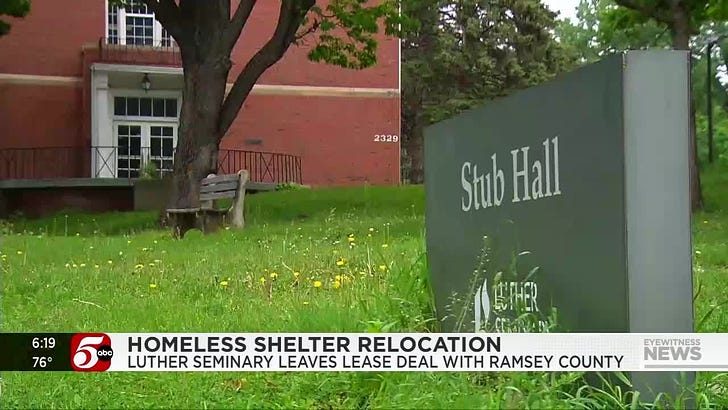
Discover more from Lutheran Confessions
Why A Tarot Card Table At Church At A Queer-Friendly Halloween Party Is the Most Christian Thing Ever
A Guidebook To Progressive Church #3
For the past couple of years our church has hosted Queer Camp, a summer camp experience for LGBTQIA+ youth. During the school year, we also put on mini-camp events to maintain connections between the campers. It’s always like a big reunion whenever we gather. One of the biggest events is our Halloween party, which we humorously call The Nightmare Before Gay Christmas.
My general approach to organizing events at the intersection of community and church life is to host space and allow whatever happens at the event to be shaped by how the community shares their gifts. For the Halloween party we invited participants to “table.” Some of our LGBTQIA+ partners set up tables with stickers and candy and some artists offer face-painting and other Halloween-themed activities. Plus lots of sugar.
We really have a blast. The kids wear amazing costumes. This year we busted out not just one but two smoke machines and we even had a cauldron with dry ice.
But the highlight of the evening for me was the quiet serenity of a tarot-reading station in the back room. It was a space of calm and healing and joy.
If you’re as unfamiliar with tarot cards as I am, perhaps everything I’m going to write from here on out will be particularly helpful. Regardless of your current relationship with “pagan” practices, I’m inviting you for this moment to consider what I say, because if I do this well I’m probably describing the beating heart of what I love about progressive Christianity.
Okay, so I first need to admit that I don’t use tarot cards myself. In fact, I don’t intentionally practice any traditions outside of the Christianity in which I’ve been raised. I’m not a multiple religious practitioner of any sort, at least not on purpose. I do recognize that what I think of as Christianity has always without exception been the weaving together of various spiritualities, from Judaism to Greek philosophy to Zoroastrianism to capitalism. There is no pure Christianity apart from its relating to other traditions.
My second admission: I have always assumed that Tarot card reading was a kind of spirituality related to the occult. But in writing this post, I’ve discovered that isn’t so.
Tarot, intriguingly, though mostly found in the New Age section of the bookstore, originated in the 15th century in Europe as a card game. They started out as a game, and can still be used in this way. It was a few centuries later, in the 18th century, that some French mystics began introducing the use of the cards for divination purposes (and paired it with a fabrication that it had origins in Egypt). For a few centuries there was a decline in their use, but in the same way we have seen a more general resurgence of board games and gaming, Tarot cards have made a comeback.
When a local psychic and Tarot card reader (and parent of a camper) offers to host a card-reading table, I’m simply glad they offered. And perhaps this is my first point. As a progressive Christian I do not have an immediate visceral negative reaction to the spiritual practices arising in the culture around me. Instead, I approach the spiritual practices of others first with a level of phenomenological curiosity (it clearly makes sense to you, so I’ll listen to you and what it means to you) and second with the simple understanding that all of us are multiple religious practitioners.
In attempting to do some of my own ancestor work, I would add: tarot cards are a part of my own ethnic heritage. They arose in Europe and remained popular in Germany and other places at a moment in time concurrent with the impact of the Reformation on Christian life in that region. Which is to say, to have Tarot cards at a church is not a complete novum. They aren’t even “foreign.” They come from where I come from, where our religious tradition comes from geographically.
Doing this kind of work is important. It’s kind of important to learn, for example, that even a Lutheran like Phillip Melanchthon (close partner of Martin Luther in writing our confessional documents) is also consider the “astrologer of the Reformation” because he considered astrology an “art of dignity” and defended it on Christian grounds. He even published an entire essay in 1535 on this topic, The Dignity of Astrology (which you can find in a collection of his orations on philosophy and education.
All of this is to say, we all have some retrieval work to do to continually come to greater awareness of how much more complex the origins are of our religious traditions.
I was recently clued into this insight when I picked up Post-Colonial Astrology: Reading the Planets through Capital, Power, and Labor by Alice Sparkly Kat. Post-colonial reflections are an integral part of the academic life of almost all progressive theology, so I’ve seen such tools applied to salutary effect in a lot of the ecclesiology and theology I’ve read the last couple of decades. I still remember reading Edward Said’s Orientalism in seminary and being forever changed by it. The whole notion that we construct or sense of “others” in order to construct who “we” are.
Anyway, as I read Post-Colonial Astrology I watched a nimble thinker apply some of the same tools to their own astrological practices, and had a small moment of revelation: We’re in this together, aren’t we? Which is to say, even if I did decide to connect intentionally to astrology (I don’t currently), a progressive astrologer would have a lot of questions, ways of interrogating the work of astrology itself. None of us can run off to other spiritual traditions and discover ones that are pure and good, unsullied by the world.
Returning to the tarot card table at the Halloween party: it is simply the case that many if not most LGBTQIA+ youth have experienced religious trauma if they have been affiliated with Christian churches. The work of the church in relationship to queer youth, therefore, must take account of this. I can perpetuate the trauma if I try to invite youth back into contexts or spiritual practices they have experienced as harmful.
This is where the Tarot card table becomes so powerful. Many queer people I know still wish to access spiritual practices, and one of the gentler modes for this are things like paganism, or tarot cards, or astrology, along with other “New Age” spiritualities that are simply not as freighted with the weight of historic oppression of LGBTQIA+ people, and also are simply not part of the dominant culture. New Age is itself, in a sense, queer.
But just as queer people are not homogenous, neither is New Age spirituality. It is also not one monolithic thing. One person may be using tarot cards just as a game. Another may actually be attempting cartomancy. One astrologer may be making literal predictions based on the planets. Another may think of it as a exercise of the imagination. Practice ranges widely.
And if I sit down and talk with practitioners, I often discover we reject some of the same parts of what is erroneously all lumped together as “the occult.” The night of the party, I spent some time talking with a friend who identifies as a pagan, and we both agreed we do not like Ouija boards, because summoning spirits is very different (and lacks consent?) from other spiritual practices that double as games. It’s an easy error to make, but an error nonetheless, to gather everything up into one basket and then ascribe guilt by association. But if this is something that frustrates me about the frequent rejection of Christianity, it should also frustrate me about my own outsider perspective of New Age practices, right?
So circling back a final time to that tarot card table. What do you think it feels like for a queer youth to come to a queer-friendly Halloween party at a church, then sit down with a friendly tarot card reader and read the cards together?
This is not a kind of question, a kind of interaction, I would have imagined a decade ago, and yet I’m so here for it.
What I observe is an overall relaxing, a lowering of the guards. Kind of like, “Oh, ok, I can be here as my authentic queer self and that’s okay, and this place is also safe for this tarot card reader who is donating her time. Yes maybe there’s some Jesus water over there in the sanctuary I can joke about, but nobody here seems to have any anxiety about me getting baptized or saved or about getting me to believe any particular thing about any of it. So I’ll sit down here, because cards are fun, and because I’d like to do a bit more self-reflection through some guided imagery and conversation. I’ll bracket for the time-being that this even is a church building. Ah yes, I can actually play here.”
The other change that happens through this kind of openness to the other in the fulness of their spiritual practice is a deepening of my own faith. I honestly hadn’t been aware that tarot cards were first and foremost (and still are) primarily a game. I love games. So at a baseline secular level I simply know more. This opens my curiosity.
Additionally, it turns out we’re not even alone in exploring the synergy between Tarot and Christianity. There’s a new book out, which I’ll clearly need to read, The Contemplative Tarot: A Christian Guide to the Cards, which I would never have known about except to write this post I googled “Tarot” and “Christianity.”
The Religion News Service in an interview quotes Brittany Muller, asks the author: “What are some of the different ways one can use the cards? You use them in prayer, which may be a little different than how others might think of using them.“
She replies:
There’s been sort of a revival of tarot just in general in the last five or 10 years, and it’s been really interesting to see the different ways people use tarot now. Even the non-Christians I know who use tarot rarely use it for any sort of divination. Most people I know who read tarot now, even people who are not Christian, use it as a tool for self-reflection. I would liken it more to therapy than fortunetelling.
That’s very similar to the way that I use tarot. I liken it to Visio Divina, a contemplative prayer practice that translates to “divine seeing.” It involves praying with images — to look at an image, to insert yourself into the image, to spend time with an image in contemplation and to see if God is speaking to you in some way through the image.
That tracks.
Subscribe to Lutheran Confessions
Reflections from a progressive Lutheran pastor in the South.





Wonderful, inclusive, freeing. I first encountered Tarot in Paulist Father Richard Chilson’s book “Prayer Making.” I think that with a little discernment, we don’t have to be so afraid and guarded about interspiritual practices especially if they build community.
Thanks for coming clean. Good to know...Anything Goes. Everyone is Welcome to use tools to practice, play, and encourage the summoning of spirits and practice fortune telling at GSLC. As a long time GSLC member and practitioner of multiple traditions, I found this post amusing. I have seen GSLC evolve over the last 15 years. We look forward to more refreshing, inclusive and inviting posts of the happenings in our church. Maybe we'll have a Sufi Dance or sweat lodge at the next campout?